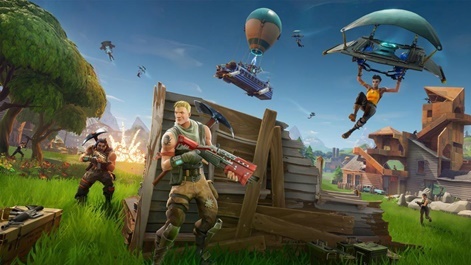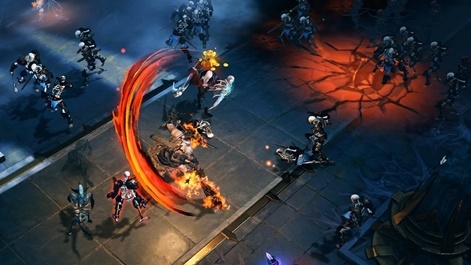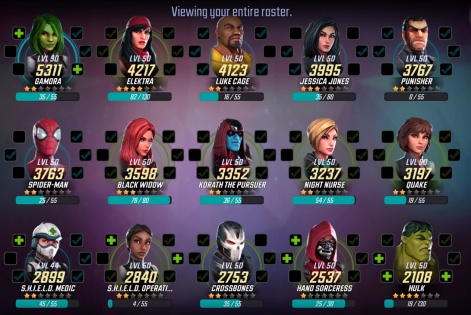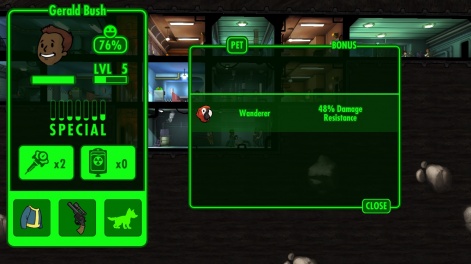Following the under-performance of EA’s Command & Conquer: Rivals and the reaction to Diablo Immortal, this week we asked our Monetizer Mavens to discuss the tricky subject of gaming IP.
Notably, while it appears to be hard to reinvent existing game IP for mobile, there have been examples of successful - if lateral - ways to approach this issue, such as Fallout Shelter.
However, given the reach of mainstream IP - mobile games based on Disney, Star Wars, Harry Potter, Marvel, Game of Thrones, Star Trek etcetera continue to be launched - is the creative process just too difficult and risk/reward profile too high?
This all boiled down to the following question:
- Do you think game IPs remain a valuable source of success for mobile games developers or do mainstream entertainment IPs now offer a simpler and better option?
The Chinese market is very strong on PC games that have been ported over to mobile.
Of course, their gaming market was dominated by online free-to-play games long before the Western markets. It's a trend that's growing in the West too, albeit slowly - Fortnite and Pokemon, as examples.
The problem is moving an originally non-F2P game over to the F2P model. There's a very high risk of alienating the original fan base, and without them on board there's really not much point in using that brand.

Ben is a 15-year veteran of the games industry - he's worked as a senior executive, studio head, project lead, creative director and game designer at companies like DeNA, EA, Sony and Lionhead.
He started working on traditional games, but has been focussed on the free-to-play business model since 2006 - an extremely long time by western standards. During that time He's worked on a total of ten separate free-to-play games across five different platforms reaching over 50 million users.
I think that in three-to-five years mobile will be just another platform for most types of games-as-a-service on PC and console. In that sense I don’t think of that phenomenon as porting non-mobile IPs to mobile as much as just developing the same game for all platforms.
I’m hearing this more and more from publishers in terms of what types of games they want to sign. Mobile is powerful enough from a hardware point-of-view, the audience is well trained on virtual sticks/buttons so all we need are enough F2P/GaaS games on PC/console and the floodgates will open as they have in Asia. Fortnite is a notable example but let’s not ignore RuneScape.

There’s a separate question of what type of IP is best for efficient user acquisition for a mobile-first game right now (console/PC or general entertainment) and I think the answer there has to be general entertainment.
Brand recognition is just so very much higher for the types of broad audience that play games only on mobile and the chance of a negative backlash (see Diablo) is far lower.

A game design and monetization analyst with professional gaming background and degrees in Social Sciences, Economics and Probabilities and Statistics, Dimitar also writes the Freemium Game Designs blog.
We know we are in the late stage cycle of mobile gaming where marketing budgets have grown into monstrosities that literally define the top grossing charts and which games will become a part of mainstream culture and which ones will fall into oblivion.
As usual in the gaming world, everything will boil down to execution, persistence and big production budgets on top of the big marketing ones.Dimitar Draganov
In such an environment it’s really hard to imagine companies would sit idle and not utilise their strong non-mobile gaming brands to get a headstart or at least reduce their marketing spend when they are entering the battle for the biggest pie of gaming – that of mobile.
Indeed we have already seen a lot of familiar names pop-up in the mobile world: Sim City, Pokemon, Fallout, Civilization, Dungeon Keeper, Contra, Lineage, etcetera. Some of them have been very successful while others failed miserably, but I would expect this trend to be even more pronounced in the next five years.
Looking ahead, I expect Diablo Immortal to be a success and I also expect more of these non-mobile gaming brands to arrive on mobile with a splash simply because they should have an easy time claiming good chunks of market share once they appear in stores as a well polished mobile version of their original universes.
The benefit of betting on them is that these high-quality brands with a default strong appeal will be immediately recognisable to the most affluent segment of mobile gamers – those aged 30-plus.

The downside however is that these games have already inspired or even been blatantly copied to mobile hundreds of times in numerous ways and sub-genres: think of all the mobile base builders and how they relate to Age of Empires and WarCraft, all the RPGs and how they transferred WoW and DOTA mechanics, etcetera.
This means that as usual in the gaming world, everything will boil down to execution, persistence and big production budgets on top of the big marketing ones so there are bound to be both successes and failures in the process.
To be fair, I still expect modern mainstream IPs to win the numbers game within the next two years, but I wouldn't be surprised and it would actually make me very happy to see one of these old gaming brands come to mobile and outperform everyone else in terms of a single-hit-success.
Starting off a quick disclaimer - any views expressed here are mine and are not necessarily shared by my employer or by any customers of my employer.
I believe both approaches have value that remain to be realised. Both non-mobile game IPs and mainstream entertainment IPs remain a strong source of brand recognition. Neither one is a guarantee of a game's success.
The differing reactions to Pokemon Go and the announcement of Diablo Immortal are instructive.Alex Gray
Players may download games based on IP, but what keeps them retained is a combination of (1) compelling, enjoyable gameplay and (2) strong live operations. They share these challenges, but they also differ in important ways.
Any work with existing IP runs the risk of backlash from the fanbase they are attempting to draw from: the same emotional attachment that means you're nearly guaranteed to see strong download numbers has the potential for strong negative reactions if the fanbase sees the game as a cynical cash grab or a departure from the core values of the IP that they, individually, have attached to it.
For non-mobile game IP, the core element seems to be making games that are additive to the IP.
The differing reactions to Pokemon Go and the announcement of Diablo Immortal are instructive. Pokemon fans reacted positively to a game that brought a new way to interact with a beloved IP, whereas the reaction to Diablo Immortal's announcement showed that fans believe they are not getting a "true" sequel to Diablo III because of Immortal's development.
I believe Diablo Immortal will be successful despite the initial hardcore fan reaction - maybe not with those hardcore fans, but with the broader player base it will appeal to.

Mainstream IPs have the benefit of not having players compare the game to a mythical ideal of gameplay - their challenge lies in activating users and giving them a new and novel way to experience the non-game IP.
Marvel's approach here is one to watch, partnering with a number of studios to launch multiple titles with distinct gameplay. A fan who is itching for games in the MCU has multiple genres to look in to find one that fits their style of play.
In short: it's not where the IP comes from per se, it's building a solid game and staying sensitive to the emotional attachments your potential player base has to that IP.

With over 15 years’ data mining experience, Mark co-founded deltaDNA, formerly GamesAnalytics, to unlock big data to drive player understanding, introducing the concept of Player Relationship Management to build better games.
Looking at data on the deltaDNA platform we can see many examples of good mobile games that got a ‘bump’ in acquisition profitability by leveraging the brand.
But the point is that the games are well designed and player management carefully considered – as the fundamental and the IP then helps deliver the players.
It strikes me that game IP coming to mobile carries a lot of baggage and so you have to build a new audience which may not necessarily be turned on by the brand or convert a console playing audience to mobile which is also a challenge.
So I would suggest mobile first adding entertainment IP is a safer bet than game IP converting to mobile.
I think a lot of this comes down to communication and timing. Blizzard alienated its core audience by first hyping up rumours about a Diablo announcement prior to Blizzcon and then revealing the game on the main stage.
Fallout Shelter was primed as a fun side-activity for all the Fallout fans.Tim Rachor
I don't think most Diablo players mind the existence of a Diablo mobile game and several of them might even develop a genuine interest in it, but the bait-and-switch reveal made them really angry.
Also, the way the game was presented irritated the fanbase as it seemed Blizzard wasn't even remotely aware that Diablo fans could be disappointed. (I think they were but they chose to go all in instead of a more humble approach).
If we look at Command & Conquer we find a quite similar story. Fans of the series have waited for any signs of life for the series for years. Then the logo showed on the big stage at E3 and they got really excited, just to learn that a very different game would be released for a platform that many of them couldn't care less.
Fallout Shelter on the other hand was primed as a fun side-activity for all the Fallout fans that also got their long-awaited sequel of the main game. It wasn't hyped up as the next actual entry in the series. I don't think it's absolutely necessary to release a full sequel alongside a mobile game but it surely helps and you'll get synergistic effects for both of them.

Core gamers are heavily invested in their brands. This can play to the IP's strength on mobile or against it. I think there is a potential audience that is also willing to adopt the free-to-play model but you have to be very careful with managing their expectations and marketing a mobile game to this informed and vocal audience.

Jordan Blackman is a lead designer and producer with over ten years of experience designing, producing, and managing hit content for companies like Zynga, Ubisoft, NovaLogic, & Disney.
Over 80 million people have played games that Jordan worked on as either a producer or designer.
Jordan’s credits include Lead Designer on FrontierVille & CastleVille, Senior Producer and Original Concept on CSI: Crime City (Facebook), Producer on Delta Force: Black Hawk Down, and Writer on Joint Operations: Typhoon Rising.
When choosing between a mainstream IP and a game IP, there are five key considerations:
- Which option will have the lowest cost per customer and the highest value per customer?
- Which option will scale better?
- Can our team successfully execute on this?
- What's the risk/reward for *our* brands?
- How much will the licence cost?
Common wisdom would be to go wide with the mainstream IP: it's easier to find downloads, isn't dependent on the sophisticated gamer, doesn’t put the company’s own game IP at risk and has more scalability to offer.
In the years ahead more and more game companies will be targeting smaller groups of passionate fans.Jordan Blackman
But, even in our so-called mature market, dynamics continue to shift dramatically. There is only room for so many products at the top of the charts and the price of getting there keeps going up. Meanwhile, licensing the same handful of IP over and over waters down their appeal. And despite some PR issues, the macro trend is that core gamers are becoming more accustomed to F2P/GaaS.
We have a generation being raised on Fortnite, Apex Legends and Hearthstone. Publishers' missteps around C&C and Diablo are part of a learning process. And Tim laid out some of those learnings nicely.
In the years ahead more and more game companies will be targeting smaller groups of passionate fans. They’ll sacrifice some scale for cheaper access to quality customers.
These games may not always make the top 20, but they’ll make still make millions. Game IP is going to be a big piece of mobile gaming's future. And those who learn to execute on the opportunity well will be generously rewarded.
But don't worry, we’ll still have our Marvel games too.
I very much agree with the key points made here thus far, with the most important element being rock-solid gameplay.
IPs help with acquisition, paid and organic, as they create a psychological connection and sense of excitement and validation with the fan base. Users come for the IP but ultimately stay for the game. Having a solid game that retains and monetizes is almost necessary in a world where the top IPs are commanding seven to eight-figure revenue guarantees.
Users come for the IP but ultimately stay for the game.Jeff Gurian
For the past few years entertainment IPs were a boon to mobile developers who could leverage large IPs to make a name for their studios. IP holders benefited by expanding their brand reach and creating alternative revenue streams.
This model is evolving though as many big IP holders have built or bought development teams and many are now keeping their top-tier IPs for themselves.
Second-tier IPs (entertainment or non-mobile) are available but their fan base is more limited so these games will have higher UA costs and lower DAUs.
The onus falls back on the game mechanics to bring the right IP "experience" and also puts a greater emphasis on the retention and monetisation elements to make the game successful.
I believe the issue is not about entertainment IP versus game IP but more about the target audience.
The mobile audience is much broader in comparison to the console audience and it includes many casual players that will never play a console game. Here are some example of game IP that transitioned well to mobile:
- Solitaire
- Various slots games
- Candy Crush (started from web and Facebook)
- Words With Friends
- Bejeweled Blitz
What's common to these is that they had wide appeal to begin with. At the same time, many PC and console games have a much narrower fan base that is also much more specific about the gameplay they expect.
So I believe we will continue to see game IP coming into mobile but it will be the more casual games that will succeed in mobile and at the same time mainstream IP will continue to make its way to mobile games.
More hardcore and midcore IP that is usually associated with console and PC games will only succeed if the retention and monetisation are super-optimised. These are key for these high LTV/smaller audience games to succeed.
Developing branded mobile games is highly appealing. The brand recognition lowers acquisition costs and marketing is a heck of a lot easier to get a trial audience. However, the difficulties occur further down the funnel in F2P games. Retention for branded mobile games will often underperform competitors in the same category.
Successes will come when the game IP is used to expand into new target markets, creating a crossover appeal.Brian Truman
In my opinion, there are two mistakes that can be made.
The first is forcing an IP into a game mechanic/genre that is incompatible with the brand. Just because throwing entertainment IP on a slot machine or pinball machine might work, this doesn't ring true on mobile. The novelty of the entertainment IP wears off quickly and the game still needs to hold itself up.
The money grab of a buy-to-play branded game has worked in the past, but the F2P mobile business model requires stickiness. Entertainment IP adds little to no value to stickiness. Does the marketing cost advantage outweigh the cost of the IP?
The other mistake games developers make when bringing a non-mobile game IP to a mobile platform is when their target market is the same as the non-mobile game.
Almost always, the mobile game is going to be a "lite" version of the console or PC game and shifting a valuable console or PC player to a mobile version of the game will lead to a disappointing experience.
I'd be cautious of thinking that the mobile platform is a substitute, rather than a complementary experience for these players.
Successes will come when the game IP is used to expand into new target markets, creating a crossover appeal. For example, Diablo Immortal will need more than past and present Diablo players to be a hit.
How does the game capture the attention of people have heard of Diablo, but never played a console or PC version?
If you think you have the smarts to add something to the conversation and you'd like to join the group, please drop me a mail at jon@pocketgamer.co.uk.




























